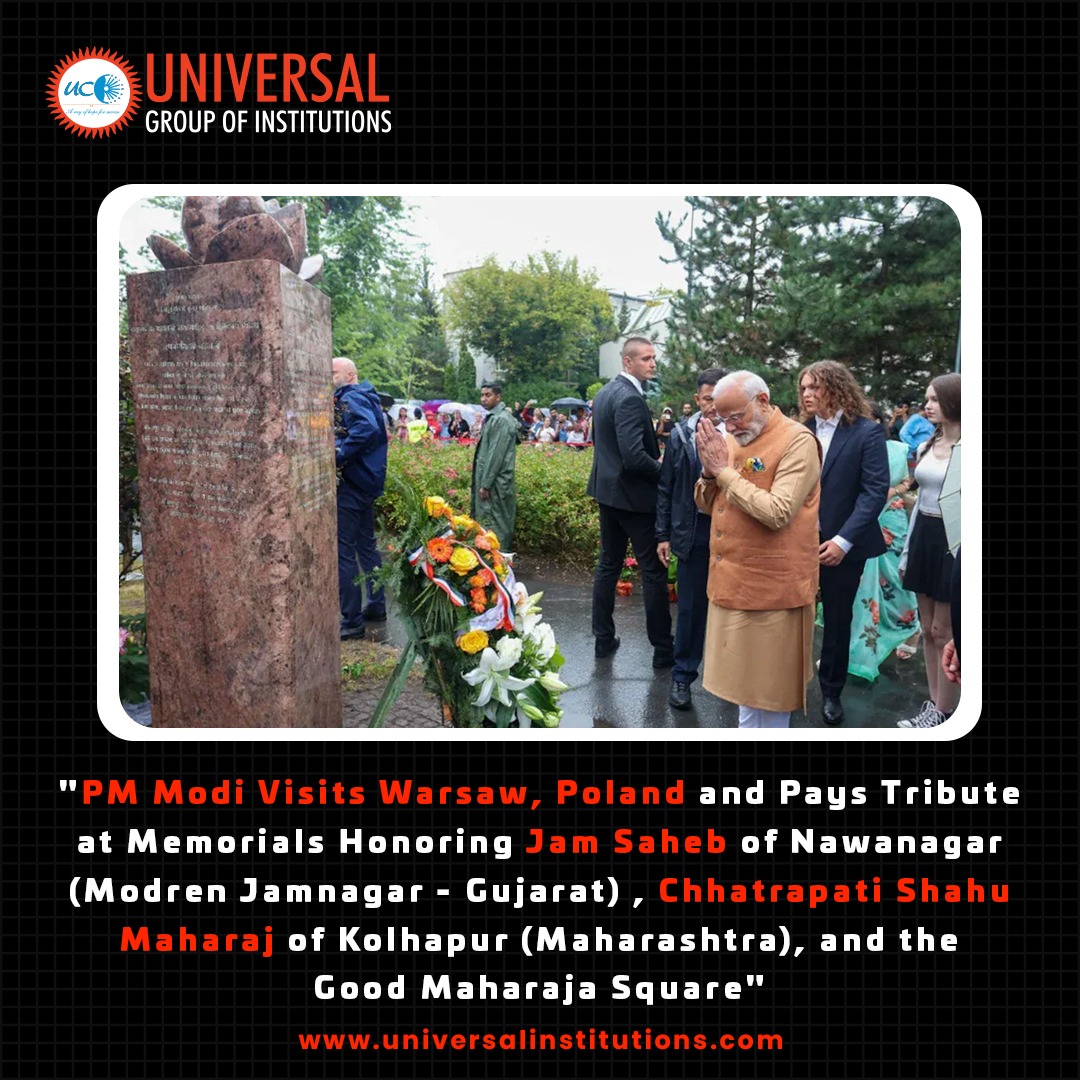HISTORIC COMPASSION REVISITED: MODI RECOGNIZES INDIA’S WWII ROLE IN POLAND TIES
Why in the News?
Prime Minister Narendra Modi’s visit to Poland has further strengthened the historical ties between India and Poland, rooted in acts of compassion during World War II. During his visit, Prime Minister Modi paid tribute to the shared history and the enduring bond between the two nations, recognizing the humanitarian efforts of Indian leaders like Maharaja Chhatrapati Shahu Maharaj of Kolhapur and Jam Saheb Digvijaysinhji Ranjitsinhji of Nawanagar. His visit underscored the importance of this historical connection in shaping the contemporary relationship between India and Poland, highlighting the enduring legacy of mutual respect and cooperation.
Introduction:
Maharaja Chhatrapati Shahu Maharaj of Kolhapur and Jam Saheb Digvijaysinhji Ranjitsinhji of Nawanagar are both renowned for their humanitarian efforts during World War II, specifically in aiding Polish refugees.
During World War II, as Poland was invaded by Nazi Germany and later by the Soviet Union, many Polish citizens, especially women and children, were displaced and forced to flee their homeland. A significant number of these refugees found themselves stranded in the Soviet Union, enduring harsh conditions in Siberian labor camps. In 1942, following diplomatic efforts, a portion of these refugees was allowed to leave the Soviet Union. It was during this time that Maharaja Chhatrapati Shahu Maharaj and Jam Saheb Digvijaysinhji extended their help.
Historical Acts of Kindness: Indian Princely States and Polish Refugees:
|
Conclusion:
Prime Minister Modi’s visit to Poland has brought renewed focus to the profound historical compassion demonstrated by Indian princely states during World War II. Maharaja Chhatrapati Shahu Maharaj and Jam Saheb Digvijaysinhji Ranjitsinhji’s humanitarian efforts in aiding Polish refugees underscore a deep-rooted friendship between India and Poland. Their legacy of empathy and support continues to strengthen the diplomatic bond between the two nations. Modi’s tribute reinforces the importance of remembering and honoring these acts of kindness, shaping the enduring Indo-Polish relationship.





